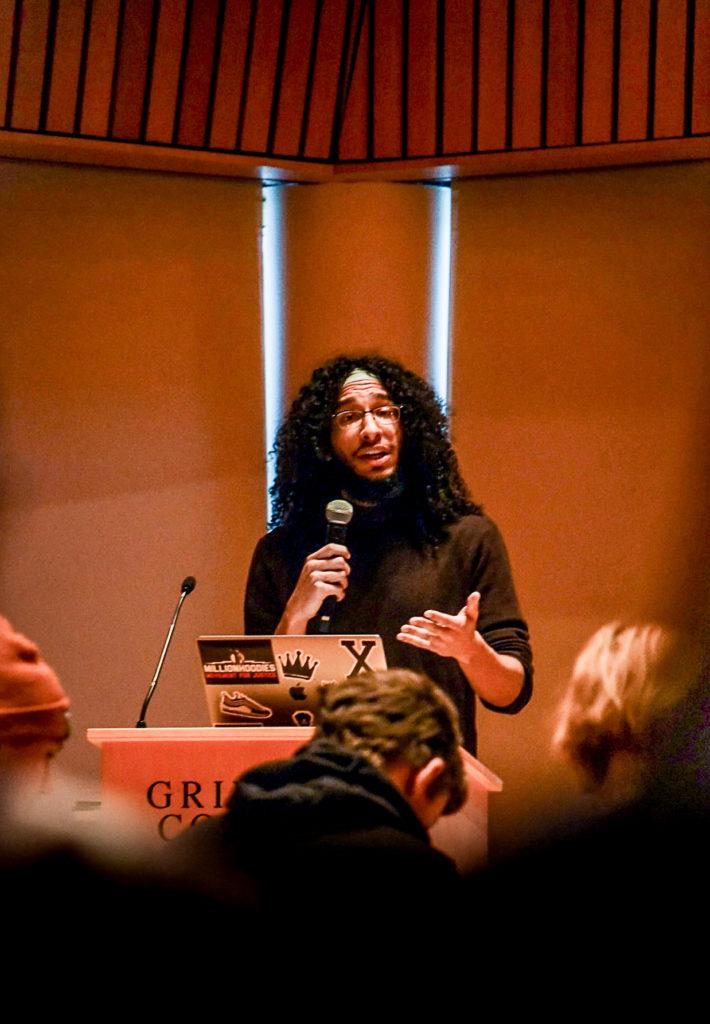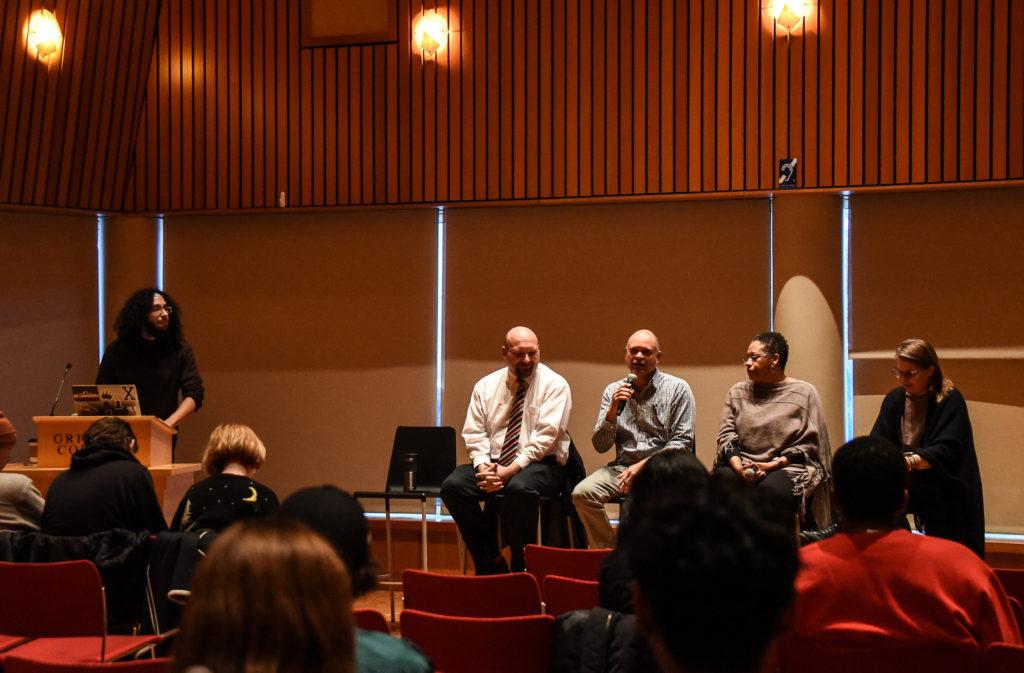

By Margaret Silbaugh
silbaugh@grinnell.edu
The Grinnell Student Government Association (SGA) and student-led activist group Million Hoodies have made a strong effort recently to forge a better relationship with various administrative departments on campus. A recent panel, held in JRC 101, gave students the opportunity to address their policy questions in person to four administrators: Director of International Student Affairs Karen Edwards, Director of Campus Safety James Shropshire, Assistant Dean of Student Involvement Michael Sims, and Chief Diversity Officer and Assistant Vice-President Lakesia Johnson.
The project was the product of collaboration between SGA Vice President for Student Affairs Saketan Anand ’21 and co-founder of the Grinnell chapter of Million Hoodies, Malcolm Davis ’21.
When asked about the importance of the collaboration between SGA and Million Hoodies, Davis said, “the partnership helps bring Million Hoodies a little closer to the administration in terms of the conversation we want to have. SGA is a cemented, age-old part of Grinnell’s culture, while Million Hoodies is very new.”
Anand, too, values the partnership between Million Hoodies and SGA. Drawing on current events, he observed that “if we look at how, in the real world, activism and governance plays out, usually they’re in opposition to each other.”
Rather than seeing activism as working in opposition to SGA, Anand sees Million Hoodies and other student activist groups as crucial partners in communicating student desires to the administration.
“Activism and student activists have a very deep and passionate insight into what students care about,” Anand said. “[Million Hoodies] is an institution that is very much in touch with student concerns and represents black and brown people’s concerns especially in a very powerful way. I think that is something that is important for an event like this, to bring those voices out.”
An in-person dialogue seemed like a good format for these questions because, as Davis pointed out, “a lot of times, if you want to get in touch with an administrator, you want to air a grievance, you want to ask a question about policy, you email them, but it’s incredibly hard to get in touch with them. [The panel] is a dedicated space for the conversation to happen in a way that is comfortable for everybody.”
During the panel, which lasted a little over an hour, students asked questions about specific administration policies, touching mostly on medical amnesty, dorm searches and bias incidents. After the panel, students reported that they were mostly satisfied with the event but still had a few remaining questions and concerns.
Caroline Shea ’22 commented on the generalized nature of the administrators’ answers, saying, “I’m kind of disappointed with the emphasis on protecting the institution of Grinnell. I feel like this college is really concerned with students’ wellbeing in a legal way, but it doesn’t always seem like genuine concern.”
Although some students were not satisfied by the answers they received, the event brought issues of mental health, safety and privacy to the forefront of campus discourse, for students and administrators alike.






























































